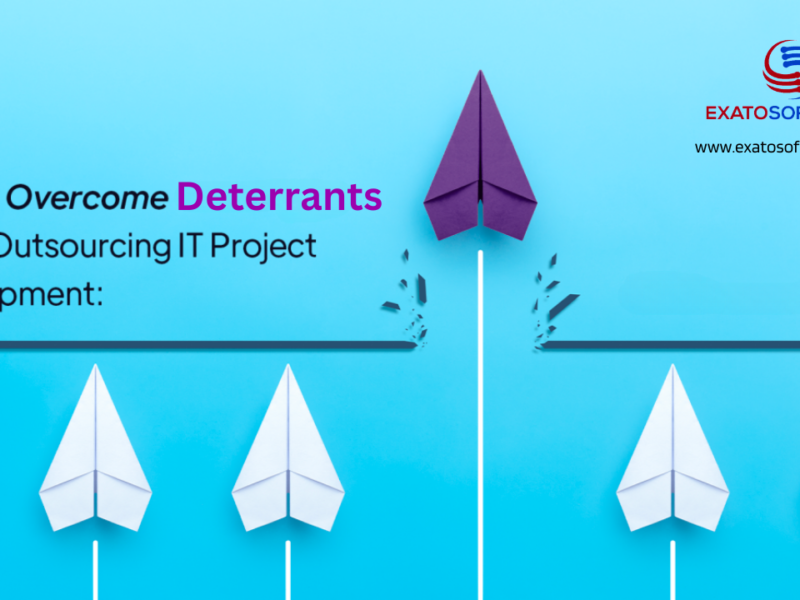Slow acquisition processes often hamper innovation. As more and more companies prefer to invest in creating software specifically for them instead of buying a finished product, the first process that needs improvement is the one related to concluding a performance contract. To avoid irrational fears, short-sightedness and confusion when acquiring new technology, it is important not to make the following four mistakes.
Mistake 1: You think you are buying an item.
You are not buying a product, you are going on a journey. Custom software is not something you grab from the shelf, such as paper clips. The team of the company responsible for insurance does not focus on factors such as unit price, units, volumes and delivery date.
The sellers of ready-made technological solutions have products available, arranged on the stand. They sell what’s in the box. In contrast, digital consultants focus on identifying investment options and developing a strategy for building fully customized software. When a company is willing to introduce technological innovation, the procurement team should help choose the right ‘leader’, rather than relying on traditional comparisons based on fixed indicators. Projects can be delayed or completely stopped when the team messes up the threads.
Custom software development service exists because there are people who decide that the finished product will not work for the benefit of their business. When working to order, the process is the product.
Mistake 2: You focus on deadlines, not quality.
Custom software development is bound by both budget and deadlines, but the latter should not be the guiding principle in decision-making. Of course, the goal is to create working software as quickly as possible. At the same time, the functionalities required determine the amount of program code that will be written. Very often, specific requirements are formed during the research and planning process. Therefore, flexibility is an important prerequisite for success. Deadlines should be carefully set together with a timetable that gives a clear idea of the time frame at each stage of the project.
Mistake 3: You view custom software as a commodity whose price is determined by the hourly rate.
Hourly development costs are far from the best way to evaluate a custom software project. It is like determining the value of an important building as a function of the price of steel and the number of man-hours invested in its construction.
The supply team can easily fall into this trap simply because the hourly development costs, like the price of steel, are easily measurable. If custom software development was simply a function of the time invested by the developer, then hiring the cheapest service of programmers from a distant developing country would lead to the desired result. It is important to hire business technologists to design and implement technology that does what you want. The goal is to have workflows that are faster, more efficient, more profitable, and more sustainable.
Mistake 4: Expect a price model based on volume.
When you buy a ready-made software product, you clearly know what discount you can expect. Volume-based pricing cannot be applied to custom development. It is important to focus on your priorities, instead of looking for a discount at any cost. The best way to evaluate a project is a cost-benefit analysis. Very often, to evaluate custom software development, it is important to compare the cost of the project with the costs that the business will incur if no action is taken.
How to approach the provision of custom software for your company?
Here are some important guidelines to follow when embarking on this journey. The main goal is to get the highest value for the money you will invest.
Look at the project from a functional point of view. When you buy ready-made software, you get a list of things it can do. When you invest in custom software, you create a list of things you want it to do. Make the most of this position. As it is difficult to objectively evaluate technological innovation, it is good to evaluate the custom software developer based on the value that the company has created for the business of its previous customers. It is inefficient to compare the value of ready-made software with the value of custom-made software.
The speed of work is also determined by the client, to some extent. When you are well prepared to make decisions and it does not take you time, you practically support the software development process.
Treat hiring a developer the same way you hire a business consultant. In both cases, the task is to improve work processes and the degree of positive change is the main criterion for measuring efficiency, especially when it has a monetary value in the form of revenue. If you have experience hiring a business consultant, you probably have an established work plan that you can use in the case of custom software.
How to achieve good performance in providing custom software for your company? Do not put all possibilities under a common denominator. When contracting to develop new technology, consider factors such as speed of approval, flexibility, problem-solving capabilities, and overall productivity. Rely on accurate measurements when giving estimates.
Companies often look for custom software when they want to take advantage of a new opportunity and achieve higher revenue through it. At the same time, the lack of clear direction in the development of innovation can create problems. Therefore, the supply team must rely on an innovative, flexible, and fast approach.
Do you want custom software specifically for your company? Send an inquiry now.



